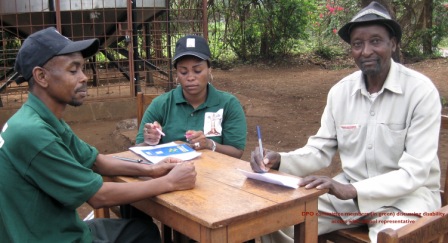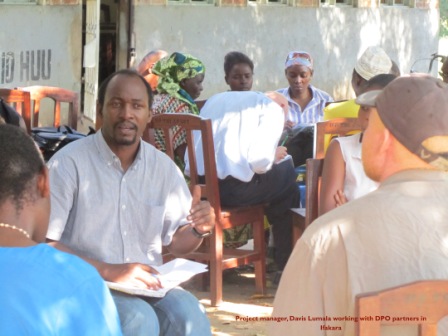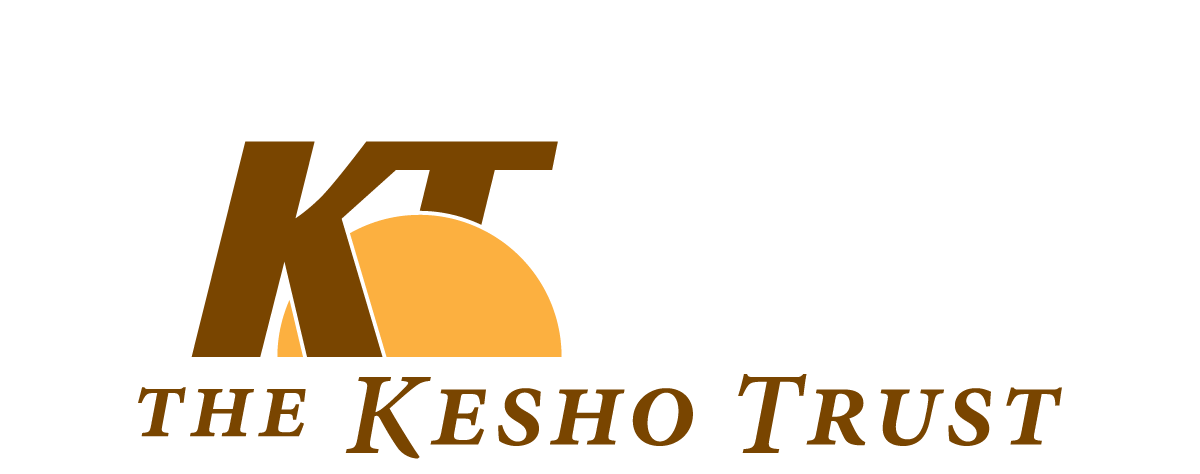Increasing the Profile of Disability Rights – ICAAD Gets Underway
A lot has been happening in our four project districts since we began implementing the Improving Community Awareness and Advocacy on Disability project four months ago. In fact, activities didn’t really get going until the very end of March, but despite the delay in funding we’ve already facilitated a whole range of different activities.
Committees of people with disabilities in Hai, Moshi, Ifakara and Morogoro have been given small grants to expand their sensitisation work into new wards that were not covered in the first phase of activities last year. They have already identified over 200 people with disabilities who had previously lived isolated lives unaware of their rights to representation and support.
Our aim is to support Disabled People’s Organisations (DPOs) to identify as many people with disabilities as possible over the coming year because by working together issues of discrimination and lack of access to services is easier to challenge.
One example of this has been the work with schools. DPO committee members have been visiting local schools to raise awareness over the need to enrol children with disabilities. Many head teachers and parents are still reluctant to allow children with disabilities to attend school as last year’s action research demonstrated, so DPO committees have been linking with schools to try to help them become more accessible to children with disabilities. In Ifakara three schools were targeted (two primary and one secondary) by DPOs resulting in improvements to the schools’ infrastructure including the building of ramps to classrooms and an increased motivation to accept children with disabilities as students. All the building work was funded by the schools from donations made by parents and members of the public which shows that there is a genuine interest in making schools more disability-friendly.
In July eight people with disabilities from all four project locations and three district officers were trained by us as Disability Equality Trainers. They were shown a range of different techniques and given materials that can be used with a variety of groups from communities and service providers to business and political leaders to raise awareness and legal obligations over disability access and equality. The newly qualified trainers are now busy planning a series of events which they hope will increase awareness over the need to think more carefully about disability access.
Local media has been one area that DPOs have not exploited well in the past and yet this can be a very powerful and effective way to raise awareness. One of our key project partners – SHIVYAWATA (DPO network organisation) – has a trained journalist who agreed to help us engage the media. In June we ran a workshop for a selection of media representatives who worked alongside members from our DPO partners. It focused on how people with disabilities can be more positively portrayed in the media and how the media can be used as a catalyst for raising issues around disability rights. It was a real success with media representatives showing a willingness to work openly with people with disabilities. This has encouraged our partners at district and national level to talk more frequently with the media and the result has been several examples of radio interviews and short programs on disability being broadcast in our project districts.
At national level our partners have been raising concern over how accessible the new fast-track bus service will be to people with disabilities. They have a meeting lined up with the Minister of Transport who is going to give a public statement on accessibility and the media have been invited to attend. As our DPOs gain in confidence we hope the media will have a supporting role to play in promoting disability rights.
The situation for Deaf people can be very challenging because of the communication barriers that often exist. ICAAD has been particularly sensitive to this issue and back in June we facilitated some advanced sign language interpreter training. The Tanzania Association of Sign Language Interpreters (TASLI) and CHAVITA (the Tanzania Association of the Deaf) ran the training which resulted in nine new sign language interpreters. The five day intensive training covered not just improving vocabulary but also topics like ethics, professional protocol and rights to improve the quality of interpreters available to Deaf people. The new interpreters have all been introduced to their district administration and are ready to provide much needed support to ensure Deaf people can access district processes and services in our project locations.
Over the coming few months our district partners will be busy with more action research, following up on the research they did last year. This was such a successful activity (both in terms of raising awareness and in improving the confidence of people with disabilities) that we are all very excited about what this round of research might achieve. We’ll keep you updated as the research gets underway.
Lorraine Wapling
Kesho Trust Advisor


